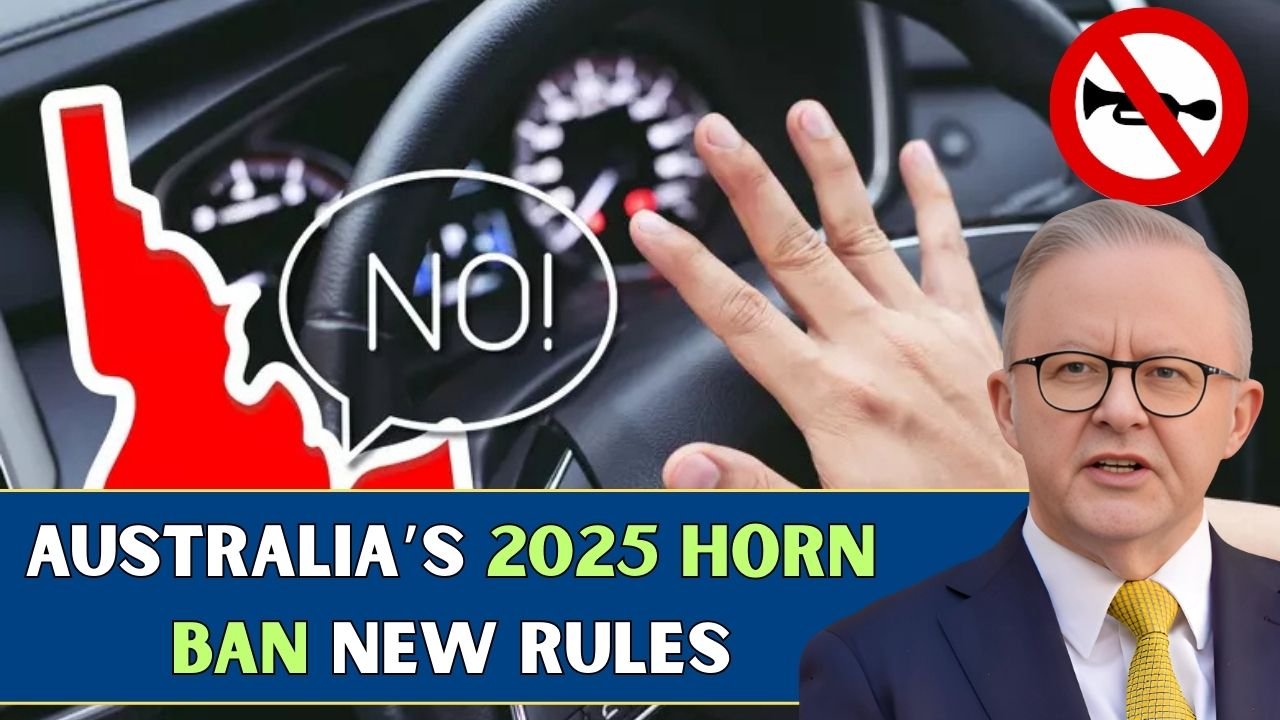Australia is introducing a significant update to its road safety framework with the 2025 Horn Restriction Rule. The reform focuses on limiting the unnecessary use of vehicle horns, reminding drivers that horns are designed for safety alerts rather than expressions of anger or impatience. The change aims to reduce noise pollution in cities while reinforcing safe and considerate driving habits across the country.
Why the rule was introduced
Authorities have long observed that excessive or aggressive horn use contributes to both road rage and urban noise levels. Many motorists use horns to express frustration, which can escalate tension between drivers. The 2025 update shifts the focus by clearly defining when a horn can and cannot be used, making misuse a fineable offence.
What drivers are allowed to do
Under the updated rule, horns can still be used to warn other road users of potential danger or to alert a driver who may be unaware of your presence. For example, if a vehicle is drifting into your lane or a pedestrian is stepping into traffic without looking, the horn remains an essential safety tool. However, casual honking at traffic signals, prolonged blasts out of frustration, or using the horn to greet someone on the street will now attract penalties.
Penalties for misuse
Drivers who breach the new rule may face fines that vary by state, with some jurisdictions already considering penalties of over $200 for unnecessary horn use. Repeat offenders could see demerit points added to their licence, particularly if misuse leads to distraction or contributes to a road incident.
Broader impact on road culture
The Horn Restriction Rule is also part of a broader cultural shift in how Australians approach driving etiquette. By reducing noise and encouraging restraint, the reform seeks to create calmer roads and prevent aggressive exchanges between drivers. Road safety advocates argue that this small change could have a big impact on reducing stress during peak traffic hours.
How drivers can adapt
Motorists are advised to treat the horn as a last-resort warning system rather than a communication tool. Defensive driving, maintaining safe distances, and staying patient in traffic will help reduce reliance on honking. Authorities believe that over time, the rule will become second nature, leading to quieter and safer roadways.




